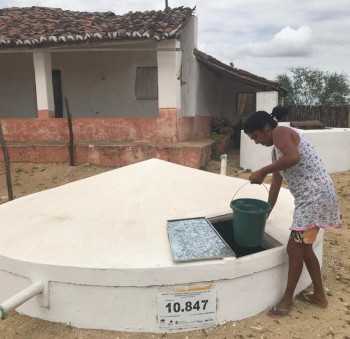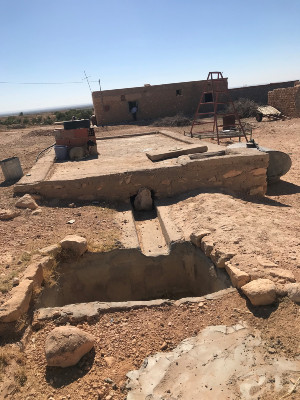 © Photo 1: Tank for rainwater harvesting and storage, Quixeramobim, Brazil (Hela Gasmi, Cirad, January 2020)
© Photo 1: Tank for rainwater harvesting and storage, Quixeramobim, Brazil (Hela Gasmi, Cirad, January 2020)
The originality of the RWSS is twofold. Firstly, these systems mobilize multiple water resources: surface runoff, groundwater, rainwater, surface water stored in small dams, etc. Their mobilization depends on climatic conditions and on infrastructure and uses at the level of the catchment area. Secondly, there are many uses of water within the family unit, ensuring the supply of drinking water, domestic water and agro-pastoral water.
 © Photo 2 : Tank for rainwater harvesting and storage, Sidi Bouzid, Tunisia (Hela Gasmi, Cirad, August 2020)
© Photo 2 : Tank for rainwater harvesting and storage, Sidi Bouzid, Tunisia (Hela Gasmi, Cirad, August 2020)
However, very often, in the face of severe droughts, external interventions are organized to provide only drinking water supply networks to improve water access in rural areas. Local communities have often faced multiple problems with these water supply networks, in particular the focus on a single water resource and a single use (drinking water), and the dependence of the population on often failing networks. The gap between the needs of rural families, and the design and the management of water services, leads to transformations of the drinking water network, operated by the communities, into domestic and agricultural water supply system.
The objective of the thesis will be to develop a participatory approach to identify and analyze the trajectory of rural water supply systems in order to improve the water resilience of rural communities. It takes as case studies two water territories in the Northeast of Brazil, particularly affected by a series of droughts, and two territories in the steppe region of Sidi Bouzid in Tunisia.
Keywords: rural water supply systems, resilience, participatory approach.






